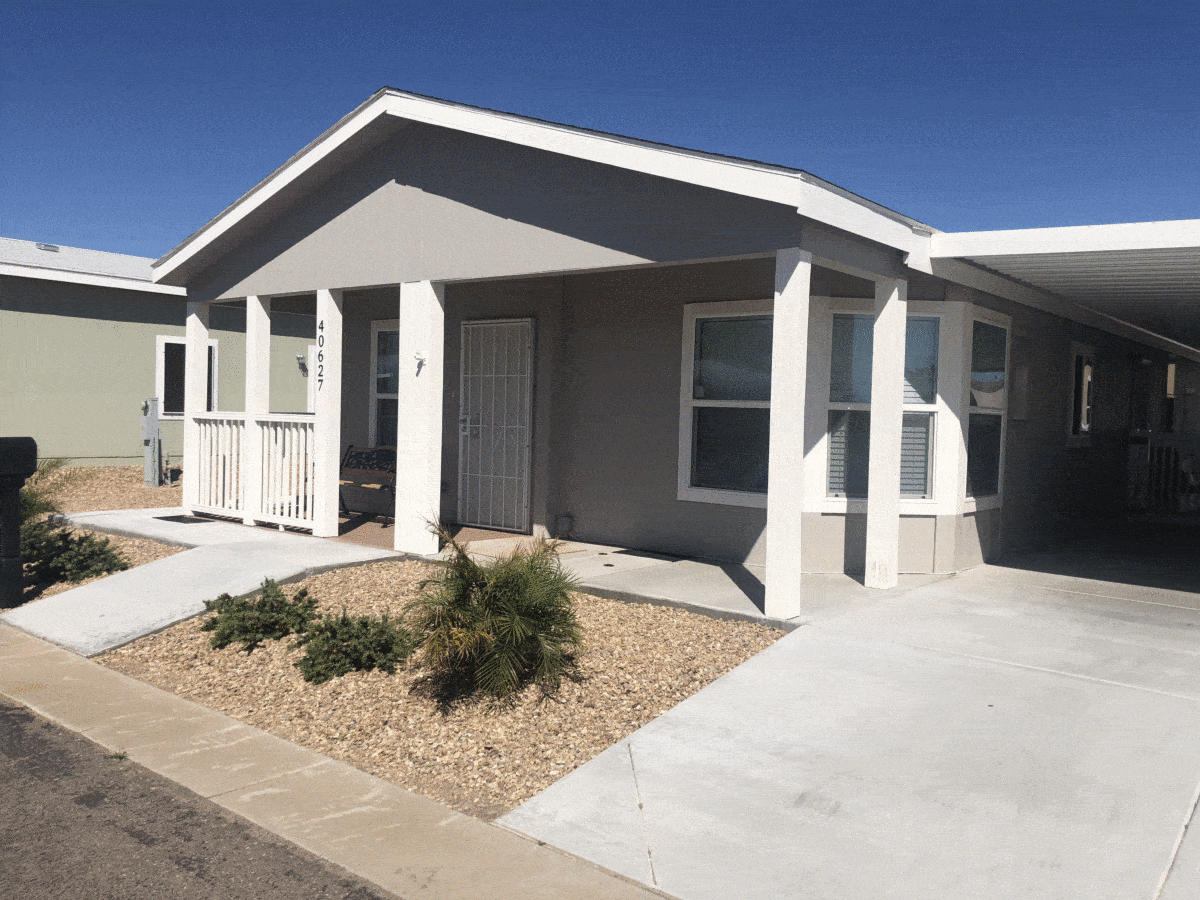(Updated December 2, 2025) Manufactured homes—often still called mobile homes—represent one of the most viable solutions for America’s persistent affordable housing crisis. They are built to the same strict federal standards (HUD Code) as traditional site-built homes, but offer significant cost, speed, and efficiency advantages. However, the path to homeownership via a manufactured home is not without complexity. As an investor who operates in this space, I’ve seen firsthand how challenges related to zoning, land cost, financing, and outdated public stigma often prevent these homes from reaching their full potential as appreciating real estate. This guide walks you through the comprehensive benefits and critical challenges that are currently revolutionizing, and sometimes restricting, this vital housing market.
Mobile homes can be a viable solution for addressing affordable housing, especially in areas where traditional housing options are expensive or in short supply. Manufactured housing can be less expensive to purchase than traditional homes and can provide an affordable option for those looking to become homeowners.
As with anything, there are some challenges when looking to mobile homes as an affordable housing solution. Mobiles often face zoning restrictions and regulations that can limit where they can be placed, making it difficult to find suitable land for them. Additionally, mobile homes may not hold their value as well as a traditional stick built home, which can make them a less attractive investment for some buyers.
Overall, mobile homes can be a viable solution for addressing affordable housing, but it is important to address the challenges that come with their use and work to create a supportive environment for mobile home development and ownership.
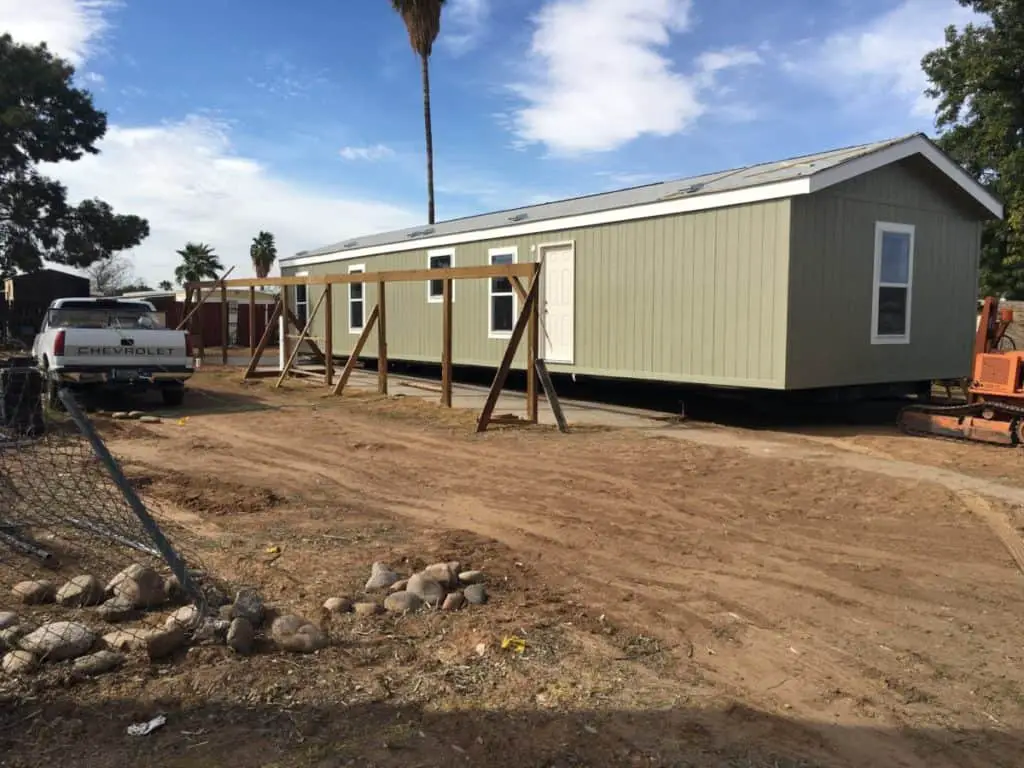
Table of Contents
The Short Answer
Here are some common issues to consider when looking to mobile homes as affordable housing:
- Zoning Restrictions: Mobile homes may face zoning regulations that limit where they can be placed, making it difficult to find suitable land for them.
- Cost of Land: Even if zoning regulations allow for mobile homes, the cost of land in desirable locations may still be prohibitively expensive.
- Quality and Durability: Mobile homes may not hold their value as well as traditional homes and may require more maintenance and repairs over time.
- Financing Options: Financing a mobile home can be more challenging than traditional homes, as some lenders may be hesitant to provide loans for mobile homes.
- Perception and Stigma: Mobile homes may carry a negative stigma in some communities, making it more difficult to find support for mobile home development initiatives.
- Lack of Long-Term Affordability: While mobile homes may be an affordable housing option initially, they may not remain affordable over the long term due to maintenance costs and decreasing value.
- Landlord-Tenant Relations: Some mobile home residents may be vulnerable to exploitation or unfair treatment by landlords, which can lead to instability and insecurity in the housing situation.
- Limited Accessibility: Some mobile homes may not be accessible for people with disabilities, which can limit the pool of potential residents.
The Core Benefits: Why Manufactured Homes are a Solution
While the challenges are real and important to address, it is critical to understand the foundational reasons why manufactured housing is an essential and powerful component of the affordable housing market:
1. Superior Cost-Per-Square-Foot
Manufactured homes typically cost 10% to 35% less per square foot than comparable site-built homes. This is the primary driver of affordability, allowing families to achieve homeownership at a much lower entry price than the conventional market allows.
2. Quality Control and Speed of Construction
Because these homes are built in climate-controlled factory environments, they are not subject to weather delays, and materials are never exposed to rain or moisture during construction. The assembly-line process also mandates consistent quality control checks that ensure the home strictly adheres to the federal HUD Code. This efficiency allows a home to be completed and installed on-site in a fraction of the time it takes to build a traditional home from the ground up.
3. Energy Efficiency (Post-2000 Models)
Modern HUD-code homes built after 2000 are often more energy-efficient than older site-built homes. The construction process allows for precise installation of insulation, reducing air leaks and improving thermal resistance, which lowers utility costs—a key component of long-term affordability.
Zoning Restrictions
Zoning restrictions for manufactured housing can vary significantly from location to location depending on the local regulations. Most urban areas tend to restrict the number, if any, of manufactured homes that they will allow in a community. Our area in metropolitan Phoenix severely restricts zoning for mobile homes. The areas already zoned for their use is small when comparing the size of the overall area. Generally speaking, no new manufactured housing zones have been established in decades.
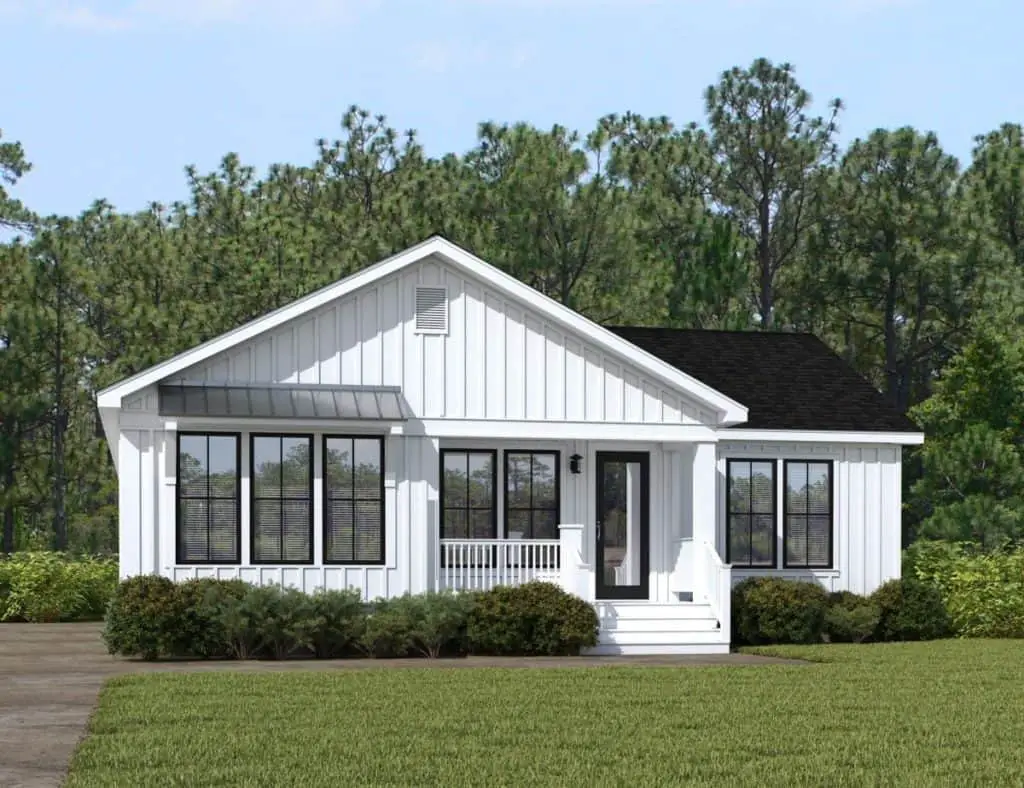
Rural areas tend to have more favorable standards for zoning when it comes to manufactured housing.
Zoning laws as well as mobile home park requirements may also require a certain foundation type to be used which can greatly affect the cost of installing a home. If a permanent foundation is required, this can have an expensive impact on installation costs when compared to an above-ground sent home.
There may also be restrictions when it comes to the age of a home may be placed on a property as well as appearance standards that might be in place. For example, certain siding and roofing materials may be required, which can increase the cost of the home.
Age restrictions are another area of concern when it comes to zoning. Certain manufactured home areas or parks may be limited to residents of a certain age.
It’s important to check with the local zoning department to determine the specific regulations for manufactured housing in a particular area you may have interest in.
Cost of Land
The cost of land is a significant factor in determining the feasibility of placing mobile homes in a particular location. Even if local zoning regulations permit the use of mobile homes, the high cost of land in desirable areas can make it challenging to find affordable sites.
Desirable locations often have high land values due to factors such as proximity to schools, shopping centers, and other amenities. These areas may also have more stringent zoning regulations, which can limit the number of available sites for mobile homes.
Land prices can vary significantly from region to region, and market conditions. Rural areas may have lower land costs, but they may also lack the necessary infrastructure and services required to support mobile homes.
Also, the cost of land is not the only expense associated with placing mobile homes. Other factors, such as the cost of site preparation, utility hookups, and permits, can also add to the overall cost.
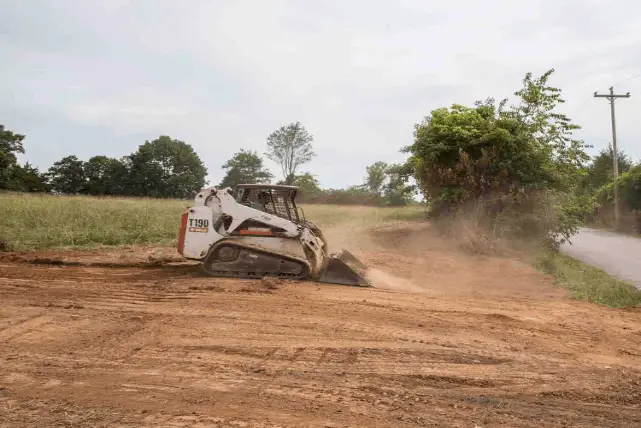
Overall, the cost of land is a critical consideration for anyone looking to place mobile homes in a desirable location. Prospective buyers or renters should research land prices in their target area and factor in all associated costs before making a decision.
As an example, we placed over the last several years new mobile homes on lots in Arizona. Zoning regulations for manufactured housing is strict. There are a fixed number of lots zoned for mobiles, and that will NOT be increasing. In 2016 we were able to purchase a number of sites for about $30,000 that were improved and ready. One even had an old mobile on it that we hauled away.
Those same lots today are priced at over $160,000. That cost, plus the cost of buying and installing the manufactured home may be more expensive than a site-built home may cost. These things vary greatly from region to region.
Quality and Durability
Quality and durability are important factors to consider when evaluating mobile homes. While mobile homes can be an affordable housing option, they may not hold their value as well as traditional homes, and they may require more maintenance and repairs over time. More repairs may or may not be true being completely dependent on the regular maintenance provided to the home by the occupants.
One reason for this is that mobile homes are often built with different materials and construction techniques than traditional homes. While modern mobile homes are constructed to strict building codes and standards, they may not be as durable as traditional homes that are built to withstand the elements and last for decades or even centuries. This is really more a factor of cosmetics, such as cabinet, flooring, fixtures quality. Roofing material and siding choices also may be base grade as well. They certainly meet standards, but may not be the highest level. The same can actually be said for many site built homes.
Moreover, mobile homes are typically designed to be moved, which means they must be built to withstand the stresses of transportation. This can make them more prone to wear and tear over time and may require more frequent repairs and maintenance.
Another factor that can impact the quality and durability of mobile homes is the quality of construction materials and workmanship. Some manufacturers may use cheaper materials or cut corners on construction to keep costs down, which can lead to quality and durability issues down the line. Again, as mentioned before, this doesn’t mean that they are not built to the HUD standards required since 1976. What it does mean, though is that the quality of the surface materials that you see, may be a lower quality in order to keep costs down. Everything looks great when it is new!
That being said, there are many well-built mobile homes on the market that are designed to last for many years with proper maintenance and care. Prospective buyers or renters should research different manufacturers and models, read reviews, and inspect homes thoroughly before making a purchase or signing a lease.
Overall, quality and durability are important considerations when evaluating mobile homes. While they can be an affordable housing option, prospective buyers or renters should be aware of the potential maintenance and repair costs over time and factor those into their decision-making process.
Financing Options
Financing a mobile home can indeed be more challenging than financing a traditional home. This is because mobile homes are considered to be personal property, rather than real estate. Personal property can be more difficult to finance because it’s not considered as stable an investment as real estate. Additionally, mobile homes often depreciate in value over time, which can make lenders more hesitant to provide loans.
If a manufactured home is situated on its own land, not in a park or rented land, then an “Affidavit of Affixture” can be secured for the overall property which in essence turns it into real estate.
What is an “Affidavit of Affixture” and How Does It Help You?
An affidavit of affixture is a legal document that certifies that a mobile or manufactured home has been permanently attached or “affixed” to a piece of real property (land) and is therefore considered a part of that property.
Mobile homes, which are also known as manufactured homes, are often placed on rented land in mobile home parks or on land owned by the mobile home owner. However, in some cases, a mobile home owner may want to attach their mobile home to a piece of land they own permanently, which is called “affixing” the home to the property. Generally this is done to be able to get permanent real estate financing on the entire property as a package.
In order to establish the mobile home as a permanent part of the property, an affidavit of affixture is required. This legal document typically includes details such as the mobile home’s serial number, date of manufacture, and location, as well as a description of the property it has been affixed to. Once the affidavit of affixture is completed and recorded with the appropriate authorities, the mobile home becomes part of the real property and is subject to the same property laws and regulations as a traditional site-built home.
However, if the manufactured home has not been “affixed”, there are still several financing options available for those looking to purchase a mobile home. Here are some of the most common options:
- Chattel loans: These are loans specifically designed for mobile homes. Chattel loans are secured by the home itself, rather than the land it sits on. This means that if you default on the loan, the lender can repossess the home. Chattel loans often have higher interest rates than traditional mortgages, but they can be a good option for those who don’t own the land their mobile home is located on.
- FHA loans: The Federal Housing Administration (FHA) offers loans for mobile homes that meet certain criteria. To qualify, the home must be built after June 15, 1976, and it must be classified as real estate (See Affidavit of Affixture above) (not personal property). FHA loans typically require a lower down payment than traditional mortgages, making them a good option for those who don’t have a large amount of savings.
- Personal loans: Some lenders offer personal loans that can be used to purchase a mobile home. These loans are often unsecured, meaning they don’t require collateral. However, because they’re unsecured, they often have higher interest rates than secured loans.
- Manufactured home loans: Some lenders specialize in providing loans for manufactured homes. These loans are similar to traditional mortgages, but they’re specifically designed for mobile homes. Manufactured home loans typically have higher interest rates than traditional mortgages, but they can be a good option for those who own the land their mobile home is located on.
- Owner financing: In some cases, the seller of a mobile home may be willing to provide financing. This is called owner financing, and it can be a good option for those who can’t qualify for traditional loans. However, it’s important to be cautious when considering owner financing, as the terms can be less favorable than traditional loans.
Overall, while financing a mobile home can be more challenging than financing a traditional home, there are still several options available. It’s important to shop around and compare offers from multiple lenders to find the best financing option for your needs.
Perception and Stigma of Mobile Homes
Unfortunately, there is a negative perception and stigma surrounding mobile homes that can be attributed to a number of factors, including outdated stereotypes, misconceptions, and negative media portrayals.
One of the primary reasons for the negative perception is the historical association of mobile homes with poverty and low-income living. Mobile homes were initially marketed as affordable housing options, and many were placed in trailer parks and low-income neighborhoods. As a result, they became associated with poverty and a lack of financial stability.
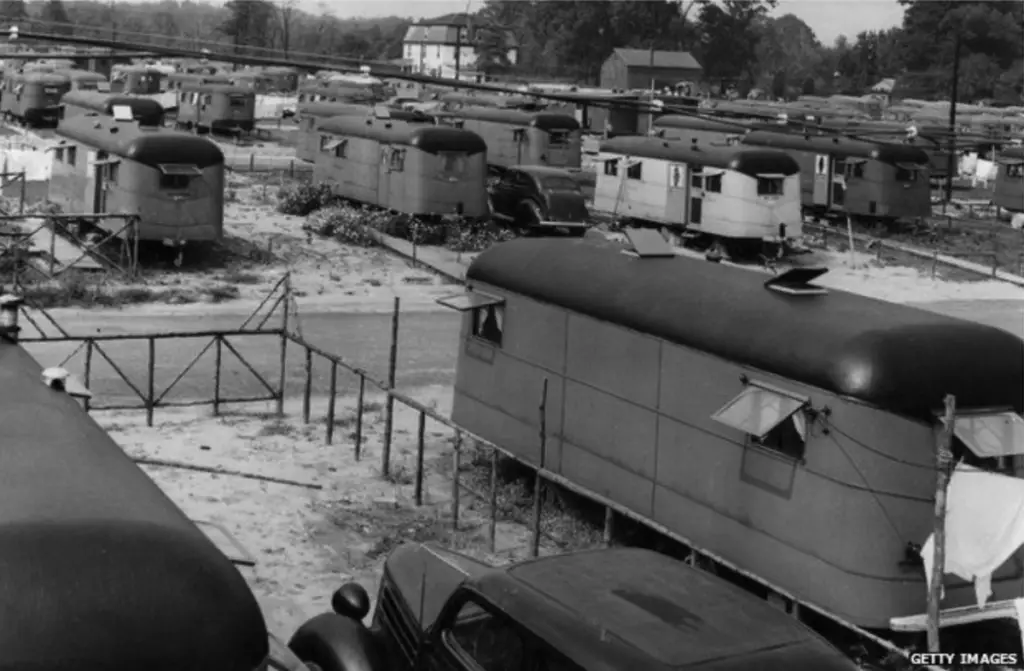
Additionally, some people view mobile homes as being of lower quality than traditional site-built homes. This is often due to outdated stereotypes and misconceptions about mobile home construction and materials. While there may have been quality issues in the past, modern manufactured homes are built to the same construction standards as traditional homes and can be very well-built.
Finally, negative media portrayals of mobile homes in popular culture, such as in movies and TV shows, can contribute to the negative perception and stigma surrounding them. These portrayals often depict mobile homes as dirty, run-down, and associated with criminal or illegal activities.

It is important to recognize that mobile homes can provide affordable and comfortable housing options for many people, and that there is no inherent quality difference between a well-built mobile home and a traditional site-built home. By challenging these negative perceptions and educating people about the benefits of mobile homes, we can help to combat the stigma and create more inclusive and affordable housing options for everyone.
Lack of Long-Term Affordability
While mobile homes may be an affordable housing option initially, they may not remain affordable over the long term due to maintenance costs and decreasing value.
MAINTENANCE COSTS:
Compared to traditional site-built homes, manufactured homes typically have lower initial costs, but they may have higher long-term maintenance costs due to several factors:
- Quality of materials: Manufactured homes may use lower-quality materials in their construction, including thinner walls and lower-grade roofing materials, which may be more prone to wear and tear over time.
- Wear and tear during transportation: Manufactured homes are transported from the factory to their final location behind a truck, which can cause some wear and tear during the journey. Bouncing up and down along a highway for potentially hundreds of miles can cause wear in even seam and joint in the home.
- Installation and foundation issues: Manufactured homes require a specific type of foundation and may require specialized installation services, which can add to the overall cost of the home. Additionally, if the foundation is not properly installed, the home may be prone to shifting and settling over time, leading to maintenance issues.
But in our experience buying an renovating both site built homes and mobile homes, it is far less expensive for us to renovate a manufactured home vs a site-built home. This is true even renovating them to the same standard materials. This is especially true when it comes to plumbing and electrical work, as the systems are more accessible in a mobile home.
DECREASING VALUE:
There are several reasons why a manufactured home may decrease in value over time, including:
- Depreciation: Like any other property, a manufactured home will depreciate in value over time due to wear and tear. Depreciation is the gradual decline in the value of a property as it gets older and is used.
- Location: The location of the manufactured home is a significant factor in its value. If the home is situated in a less desirable location, such as an area prone to natural disasters or with high crime rates, its value may decline over time.
- Maintenance: If a manufactured home is not well-maintained, it may lose value. Deferred maintenance, neglect, or damage can result in the need for costly repairs or renovations, which can further decrease its value.
- Housing Market: The value of a manufactured home, like any other property, is also impacted by the housing market. Economic factors such as interest rates, supply and demand, and overall economic conditions can affect the value of a manufactured home.
Overall, it’s essential to remember that manufactured homes are typically less expensive than traditional homes and may not appreciate in value as quickly or as significantly as other properties. However, proper maintenance and upkeep can help preserve its value over time.
Landlord-Tenant Relations
Some mobile home residents may be vulnerable to exploitation or unfair treatment by landlords, which can lead to instability and insecurity in the housing situation. Keep in mind, that if a manufactured home is in a park, where the site is being rented, the owner of the mobile home cannot easily just move the home to another location without incurring significant expense.
Landlords often exploit mobile home tenants in several ways, including:
- Rent increases: Landlords may exploit mobile home tenants by raising their rent significantly without providing adequate notice or justification. Mobile home tenants may be stuck with their home in a particular location due to the cost of moving, and landlords may take advantage of this by increasing rent.
- Lease agreements: Landlords may include unfair terms and conditions in lease agreements, such as requiring tenants to pay for repairs and maintenance of the home, even when they are the landlord’s responsibility. They may also include penalties or fees for minor infractions, which can add up quickly.
- Utilities: Some landlords may charge mobile home tenants for utilities, such as water, sewer, or trash, which are typically included in the rent in other rental situations. They may also overcharge for these services, further exploiting the tenant.
- Harassment and intimidation: Landlords may harass or intimidate mobile home tenants, threatening eviction or taking other punitive actions if they complain about conditions or seek legal remedies.
- Maintenance and repairs: Landlords may neglect maintenance and repairs on the mobile home, causing health and safety hazards for the tenants. They may also require tenants to pay for repairs, even when they are the landlord’s responsibility.
These are just a few ways that landlords can exploit mobile home tenants. It’s essential for tenants to know their rights and to seek legal advice if they suspect they are being exploited or mistreated.
Limited Accessibility
Some mobile homes may not be accessible for people with disabilities, which can limit the pool of potential residents.
Mobile homes can limit access to the disabled, because of several factors, including the layout of the home, the size of the home, and the accessibility features that are installed.
In general, mobile homes can be more challenging for people with mobility issues to navigate due to their smaller size and more limited floor plan. Narrow hallways, small doorways, and tight spaces may make it difficult for people who use wheelchairs or walkers to move around comfortably.
Additionally, older mobile homes may not have been built with accessibility features in mind, such as ramps, wider doorways, or grab bars in the bathroom. These features can be added later, but they may require modifications to the home, which can be expensive and time-consuming.
However, newer mobile homes are often designed with accessibility in mind, and many manufacturers offer models that are specifically designed for people with disabilities. These homes may include wider doorways, accessible showers and tubs, and other features that make it easier for people with disabilities to live independently.
In general, mobile homes can limit access to the disabled, but with the right modifications and accessibility features, they can be made more accessible and livable for people with disabilities.
Conclusion
Affordable housing … one of the biggest challenges we face as a people in the United States. It seems to have worsened significantly since the downturn of 2008.
Manufactured housing has long offered one solution to affordable housing for hundreds of thousands of people, and will continue to do so in the future. There are benefits, such as a lower initial cost. Even lower maintenance costs overall.
These advantages do not negate some of the negatives that we have explained in this blogpost. Carefully weigh your lifestyle and needs when deciding if the purchase of a manufactured home is right for you.
Written by a real estate investor with 20+ years of experience buying, selling, and managing both site-built and manufactured homes across the Southwest.

